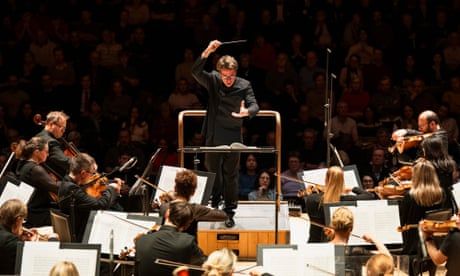
Barbican Hall, London
The conductor put his stamp on the BBCSO programme with lyrical Haas, energising Beethoven, introspective Schubert and Schostakovich that may have been the loudest orchestral music ever heard at the Barbican
London audiences can look forward to getting to know Jakub Hrůša a lot better in the coming years. On a night off from conducting Janáček’s opera Jenůfa at Covent Garden – where he is music director designate – he put his stamp on a BBCSO programme beginning with the little-known and rewarding scherzo triste by his compatriot Pavel Haas, a composer who would be much better known had he lived longer: he was murdered in Auschwitz aged 45. Inspired by an unhappy love affair, the scherzo is angular and restless initially, its fragmentary theme coalescing into a longer melody and finally finding calm in a lyrical culmination, recalling Janáček at his most radiant.
In Beethoven’s Piano Concerto No 2 the soloist Jonathan Biss was an energising presence from his first entry. The lonely lines at the end of the slow movement, played with the sustaining pedal down, sounded almost other-worldly; elsewhere, his buoyant phrases bounced off the warm-toned orchestra with transparent clarity. But in his encore, Schubert’s G-Flat Major Impromptu, the tune was so soft that it merged into the rippling accompaniment, dimming the melody’s song-like nature – if it’s possible for this piece to sound too introspective, that might be what he achieved.
Continue reading...